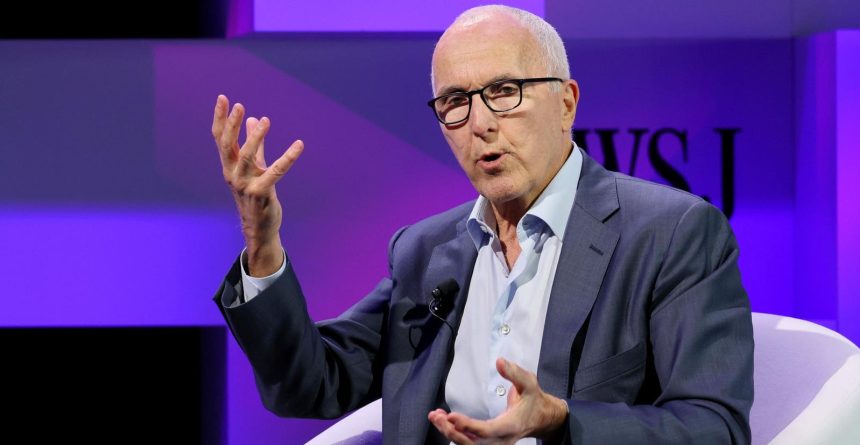The Looming TikTok Ban: A Timeline of Legal Battles, Political Maneuvering, and Potential Acquisitions
The fate of TikTok in the United States hangs precariously in the balance, entangled in a complex web of national security concerns, legal challenges, and political maneuvering. The popular social media app, owned by Chinese parent company ByteDance, faces a potential ban set to take effect on January 19, 2025, unless certain conditions are met. A timeline of events leading up to this critical juncture reveals a saga of escalating tensions, legal battles, and potential acquisition attempts.
The story begins in early 2024, with bipartisan concern in Congress over potential national security risks posed by TikTok’s Chinese ownership. Legislation requiring TikTok to be sold or banned gained momentum, culminating in President Biden signing the bill into law in April 2024. TikTok immediately responded with legal action, challenging the constitutionality of the ban and claiming First Amendment violations. This initial legal salvo set the stage for a protracted legal battle that would eventually reach the Supreme Court.
As the legal challenges progressed, potential buyers emerged, including tech giants like Microsoft and Oracle, as well as a consortium spearheaded by billionaire investor Frank McCourt. McCourt’s "People’s Bid for TikTok" aimed to rebuild the platform with a focus on American user privacy and data security. However, the complex ownership structure of ByteDance, including significant investments from American firms, added another layer of complexity to the potential sale. The involvement of billionaire Jeff Yass, a major investor in ByteDance and a prominent GOP donor, introduced a political dimension to the situation, with Yass reportedly lobbying against the ban.
The legal battle escalated in late 2024, with TikTok appealing to the Supreme Court to block the impending ban. The court agreed to hear arguments in January 2025, just days before the ban’s scheduled implementation. This development injected further uncertainty into the situation, as the outcome of the Supreme Court’s decision would have far-reaching implications for TikTok’s future in the U.S.
Adding to the complexity, President-elect Donald Trump, who had previously supported a ban on TikTok, reversed his position in December 2024. Trump’s intervention, potentially influenced by Yass, added a new layer of political intrigue to the already convoluted situation. Trump’s stated intention to seek a "political resolution" further muddied the waters, creating uncertainty about the future direction of the government’s approach to TikTok.
The potential ramifications of a TikTok ban are significant. With over 170 million American users, the app has become a major platform for communication, entertainment, and commerce. A ban would not only disrupt these activities but also raise concerns about the fate of American user data, potentially leaving it vulnerable to transfer to China.
The Supreme Court’s impending decision holds the key to TikTok’s future in the U.S. The court’s ruling will determine whether the ban will be upheld or overturned, ultimately shaping the landscape of social media and data privacy in the country. The outcome will also have significant implications for the ongoing debate over national security concerns related to foreign-owned technology companies operating within the United States. The legal, political, and economic stakes are high, making this a landmark case with far-reaching consequences.
The People’s Bid and Other Potential Acquisitions: A Race Against Time
As the legal battle unfolds, the race to acquire TikTok’s U.S. assets continues. Frank McCourt’s Project Liberty, a consortium of investors including "Shark Tank" star Kevin O’Leary and Guggenheim Securities, has presented a proposal to ByteDance. This bid emphasizes a commitment to rebuilding TikTok’s U.S. operations with a focus on data privacy and American-built infrastructure. The involvement of O’Leary, a well-known figure in the business world, adds visibility to the bid and underscores the potential for a domestically-led acquisition.
Other potential buyers remain in the mix, including Amazon, Oracle, Walmart, and Microsoft. Amazon’s deepening ties with TikTok, including a recent partnership allowing users to shop on Amazon through the app, position the e-commerce giant as a potential acquirer. Oracle and Walmart previously pursued a joint bid for TikTok in 2020, a move reportedly stalled by the Biden administration over security concerns. Microsoft, which also attempted to acquire TikTok in 2020, could re-enter the bidding war. Video-sharing platform Rumble has publicly expressed interest in acquiring TikTok, adding another contender to the field.
However, any potential sale faces significant hurdles. ByteDance has shown reluctance to sell TikTok’s algorithm, a key component of its success. Furthermore, any sale would require approval from China, which has vowed to block the sale of the algorithm. This political obstacle adds another layer of complexity to the already intricate situation.
The timeline is further compressed by the impending ban date. Potential buyers must navigate a complex landscape of legal, political, and financial considerations, all while racing against the clock. The outcome of the Supreme Court case will undoubtedly influence the trajectory of these acquisition attempts, adding further pressure to the already high-stakes situation.
The Key Players: Billionaires, Politicians, and Tech Giants
The TikTok saga involves a cast of influential figures, each playing a significant role in shaping the app’s future. Frank McCourt, the billionaire investor behind Project Liberty, has a history of high-profile acquisitions, including the Los Angeles Dodgers. His focus on data privacy and American ownership positions him as a potential savior for TikTok in the U.S. Kevin O’Leary, the "Shark Tank" investor, brings his business acumen and media savvy to the People’s Bid, adding public prominence to the effort.
Jeff Yass, the billionaire investor in ByteDance, wields significant influence due to his substantial stake in the company and his political connections. His reported lobbying efforts against the ban and his financial support for conservative lawmakers highlight the political dimension of the TikTok saga.
President-elect Donald Trump’s intervention further complicates the situation. His reversal on the TikTok ban, potentially influenced by Yass, adds a layer of political intrigue and raises questions about the future direction of the government’s approach to TikTok.
Finally, tech giants like Amazon, Oracle, Walmart, and Microsoft play a crucial role as potential acquirers. Their decisions will significantly impact the future of TikTok in the U.S., shaping the landscape of social media and online commerce.
The Stakes: National Security, Data Privacy, and the Future of Social Media
The TikTok ban raises fundamental questions about national security, data privacy, and the future of social media in the United States. The government’s concerns about potential Chinese government access to user data highlight the tension between national security and individual privacy in the digital age. The outcome of the Supreme Court case and the subsequent acquisition attempts will set a precedent for how the U.S. addresses these concerns in the future.
The fate of American user data is also a major concern. If TikTok is banned, the data of millions of American users could potentially be transferred to China. This scenario raises alarming questions about data privacy and the potential for misuse of personal information.
The TikTok saga highlights the growing influence of social media platforms in modern society and the complex interplay between technology, politics, and national security. The outcome of this high-stakes battle will have far-reaching consequences, shaping the future of social media and the digital landscape for years to come.



